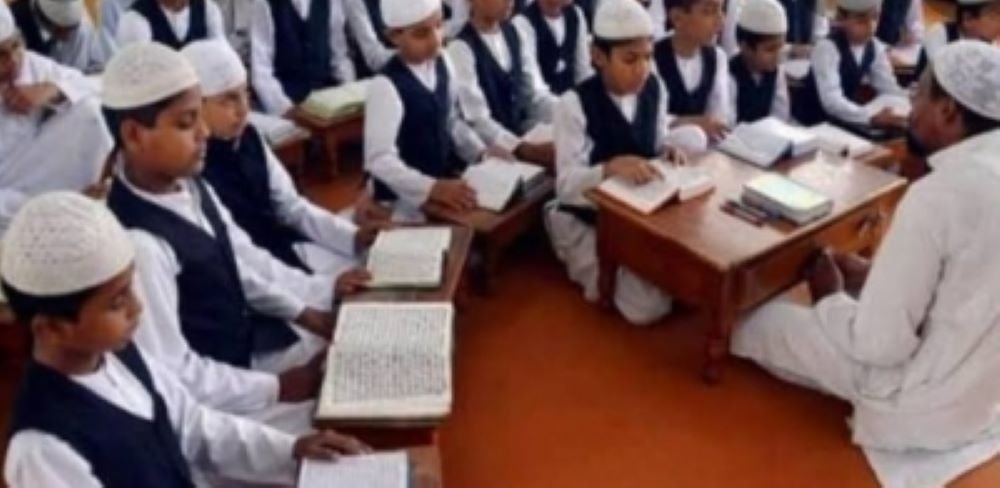Chairman of the child rights body Priyank Kanoongo expressed concerns that madrasas were hindering Muslim children’s access to formal education and demanded the scrapping of madrasa boards
Team Clarion
NEW DELHI – The National Commission for Protection of Child Rights (NCPCR) has created a controversy by urging all state governments to end financial support to madrasa boards, citing concerns over Muslim children’s access to formal education.
Most political parties and Muslim organisations are up in arms against the NCPCR recommendations.
The Indian Union Muslim League (IUML) said it was the latest display of the communal agenda by the Union government and its agencies. IUML national general secretary PK Kunhalikutty said that the move against madrasas was aimed at destroying the fundamental rights and the Indian Constitution.
“Madrasas are offering values to help mould a good human being. Madrasas are never centres of anti-national ideology. The moves against madrasas are with a communal motive,” said Kunhalikutty.
IUML leaders ET Mohammed Basheer, MP, and MK Muneer, MLA, too said that the Centre’s move was aimed at alienating the Muslim community.
Congress Working Committee member Ramesh Chennithala described the NCPCR recommendation against madrasas as unconstitutional. “It is a clear violation of the fundamental rights enshrined in the Constitution. The NCPCR directive violates Articles 29 and 30 of our Constitution,” said Chennithala.
He said that children attending madrasas were never being denied a formal education. Insisting on having formal education on madrasa campuses will not be practical, he said.
Communist Party of India (CPI) state secretary Binoy Viswam warned that the move to close down madrasas would alienate the Muslim community further. “It is a part of the Sangh Parivar agenda,” he said.
Viswam said the NCPCR was following the footsteps of the Sangh Parivar thoughts. He demanded that the NCPCR withdraw from the “dangerous move.”
The Kerala Muslim Jamat (KMJ) described the NCPCR move as unconstitutional. Muslim Jamat State general secretary Syed Ibrahim Khaleel Bukhari said that meddling with the institutions of one religious community with the objective of creating havoc would be detrimental to the country and its people.
Sunni Yuvajana Sangham (SYS) State secretary Abdussamad Pookkoottur, condemned the NCPCR move. He said it would not affect the madrasas in Kerala as they were not getting any government aid.
In a letter written to state governments and Union Territories across India on Saturday, NCPCR chairman Priyank Kanoongo expressed concerns that madrasas were hindering Muslim children’s access to formal education and demanded the scrapping of madrasa boards.
Kanoongo further proposed that non-Muslim children currently studying in madrasas should be moved to mainstream schools under the Right to Education Act 2009.
According to the NCPCR, these recommendations are based on a comprehensive study examining the educational conditions of Muslim children. The commission explained its goal: “The report was prepared with the aim of creating a roadmap to ensure that all children across the country grow up in safe, healthy, and productive environments, empowering them to contribute meaningfully to the nation-building process.”
“The commission has been investigating this issue for the past nine years,” media reports quoted Kanoongo as saying. “Our research reveals that many Muslim children are being deprived of schooling because of their enrolment in madrasas. The madrasa boards have not fulfilled the purpose they were created for. We have requested that chief secretaries close these boards and redirect their efforts toward integrating children into mainstream education,” he said.
Kanoongo highlighted that over 25.1 crore children are currently enrolled in madrasas with no connection to the madrasa boards. He stressed that, despite receiving government funds, these boards have failed to deliver on their objectives.

